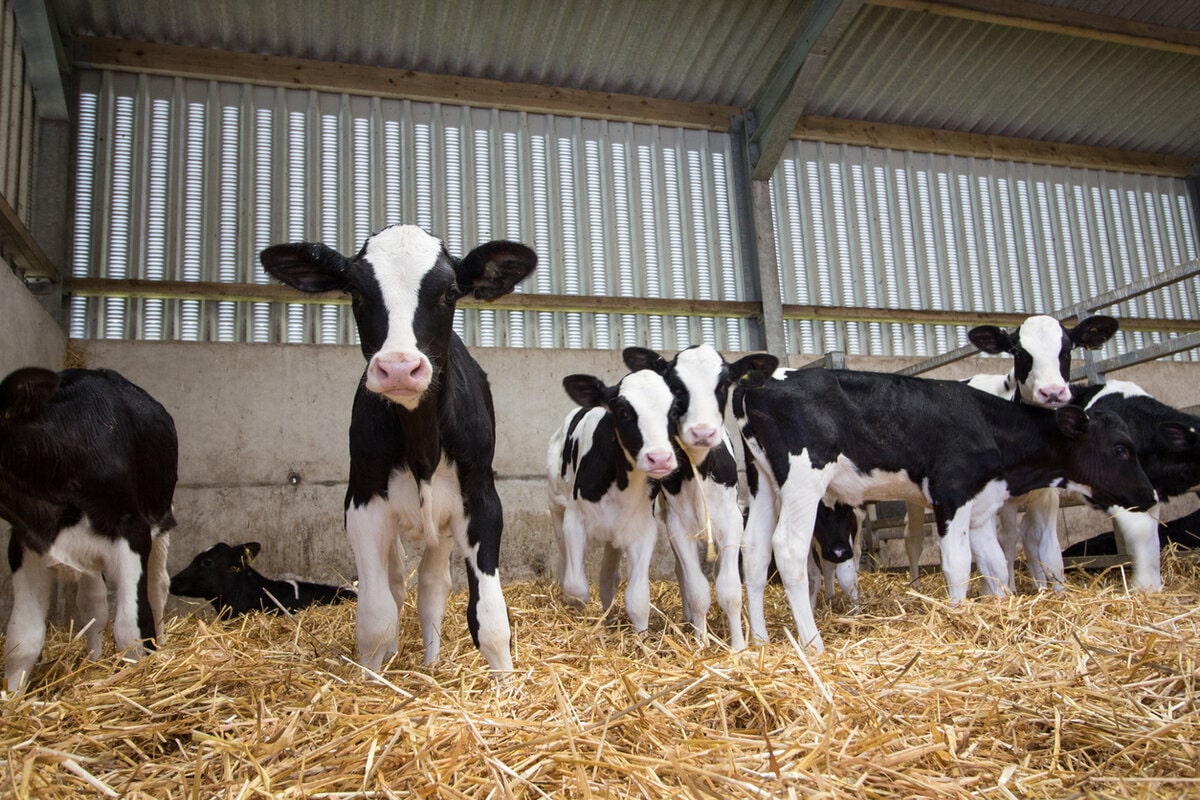Weaning calves is a very important time for your young ruminant herd. Weaning your dairy calves can be a stressful experience for you and for them. Focusing on their rumen development, their nutrition, and their health can make the weaning process significantly easier and less costly for everyone involved.
When To Wean
Although weaning age differs from farm to farm, the common age for weaning calves is between 5 and 7 weeks. Farms base their weaning age on multiple factors including, but not limited to, management techniques, calf health, cost, and amount of dry feed that the calves are eating per day.
Wean Healthy Calves
A healthy calf has a higher chance of a smooth transition to a dry feed and roughage diet. Higher stress levels can increase cortisol in blood which can increase the chance for inflammation, sicknesses, and diseases like scours and pneumonia.
Dairy Calf Weaning Nutrition
Pre-weaning nutrition plays a major role in achieving a successful weaning process. It can also help you avoid post-weaning growth stalls and illnesses. Prior to weaning the calf’s nutrition is meant to help develop the rumen with minimal disturbance to its immune and digestive systems.
Newly born calves must consume 4 quarts of high-quality colostrum within the first 4 hours of life, this can be done over a couple feedings if necessary. Colostrum intake critically impacts calf performance, health, and average daily gain, making its timing one of the most important management practices on the farm.
Calf energy requirements depend on body size, health, and environmental conditions. To maximize growth rates and weight gain before weaning, you need to provide your calves with more crude protein and energy than they need for maintenance. Star Blends can work with your dairy nutritionist to create a custom feed for your dairy calves. Our custom solutions can help you maximize calf performance, health, and average daily gain.
Rumen Development: Why Feeding Grain Early Matters
Newly born calves have an underdeveloped digestive system. At birth, the calf’s rumen is inactive, leaving the abomasum as the only active part of the digestive system. The abomasum readily digests milk or milk replacement, but the rumen must be developed to transition to solid feed successfully.
Once developed, the rumen acts as a fermentation chamber where microorganisms digest complex carbs and high-fiber feedstuffs. Ruminant animals need a completely developed rumen to digest and absorb nutrients from high roughage feedstuffs efficiently.
Water
While grain is critical for rumen development, water also plays a major role. Rumen microbes require water to grow and digest feedstuffs. Without clean, fresh water, rumen development is limited, and calves won’t be motivated to eat more grain.
The Importance of Offering Starter Feed
To achieve a higher weaning success, feeding a texturized feed with proper amount of corn and protein is extremely important. It is recommended that the starter feed is introduced within 48 hours after birth along with fresh water. To keep the calves interested in the calf starter, any feed that is older than 24 hours and/or is wet should be removed and discarded. Newly born calves will not eat the calf starter if it is wet or moldy, thus decreasing their grain intake and potentially causing issues during the weaning time. Fresh feed should be offered in a clean bucket to replace the discarded feed.
Starter feed inventory should also be considered and managed. The recommendation is that the starter feed storage does not exceed one month. The fresh feed will encourage the calves to eat it and continue eating it.
Once the calves are consuming 2-3 pounds of starter feed and the calf is healthy with good body weight of 160 pounds or more, it is time to start the weaning process. Ensure that all other management changes are minimized during this process to reduce stress. Gradual weaning has also been proven to reduce stress and improve the health of weaned calves. Reducing milk availability and keeping fresh starter feed available to calves will help make this transition successful.
Post Weaning
We recommend that calves are kept in their present housing situation and stay on their current starter feed for at least two weeks after full weaning. After those two weeks, the calves can then be gradually transitioned to a grower feed to ensure they receive all the nutrition they need to support their fast-growing bodies.
Custom-Made Feed For Your Dairy Herd
Star Blends is here for you — whether your farm consists of young calves, weaned calves, lactating cows, or anything in between. Get in touch with our team to learn about our custom feed solutions and how we can partner with you and your nutritionist.



